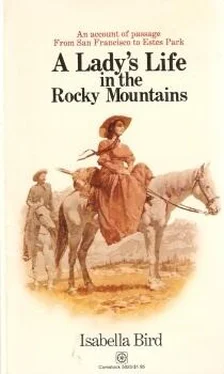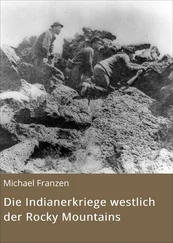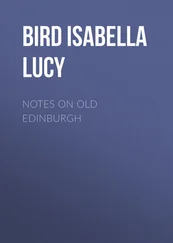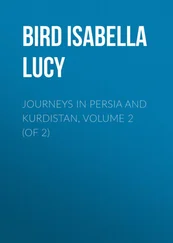I. L. B.
A dateless day — "Those hands of yours" — A Puritan — Persevering shiftlessness — The house-mother — Family worship — A grim Sunday — A "thick-skulled Englishman" — A morning call — Another atmosphere — The Great Lone Land — "Ill found" — A log camp — Bad footing for horses — Accidents — Disappointment.
CANYON, September.
The absence of a date shows my predicament. They have no newspaper; I have no almanack; the father is away for the day, and none of the others can help me, and they look contemptuously upon my desire for information on the subject. The monotony will come to an end to-morrow, for Chalmers offers to be my guide over the mountains to Estes Park, and has persuaded his wife "for once to go for a frolic"; and with much reluctance, many growls at the waste of time, and many apprehensions of danger and loss, she has consented to accompany him. My life has grown less dull from their having become more interesting to me, and as I have "made myself agreeable," we are on fairly friendly terms. My first move in the direction of fraternizing was, however, snubbed. A few days ago, having finished my own work, I offered to wash up the plates, but Mrs. C., with a look which conveyed more than words, a curl of her nose, and a sneer in her twang, said "Guess you'll make more work nor you'll do. Those hands of yours" (very brown and coarse they were) "ain't no good; never done nothing, I guess." Then to her awkward daughter: "This woman says she'll wash up! Ha! ha! look at her arms and hands!" This was the nearest approach to a laugh I have heard, and have never seen even a tendency towards a smile. Since then I have risen in their estimation by improvizing a lamp — Hawaiian fashion — by putting a wisp of rag into a tin of fat. They have actually condescended to sit up till the stars come out since. Another advance was made by means of the shell-pattern quilt I am knitting for you. There has been a tendency towards approving of it, and a few days since the girl snatched it out of my hand, saying, "I want this," and apparently took it to the camp. This has resulted in my having a knitting class, with the woman, her married daughter, and a woman from the camp, as pupils. Then I have gained ground with the man by being able to catch and saddle a horse. I am often reminded of my favorite couplet, —
Beware of desperate steps; the darkest day,
Live till to-morrow, will have passed away.
But oh! what a hard, narrow life it is with which I am now in contact! A narrow and unattractive religion, which I believe still to be genuine, and an intense but narrow patriotism, are the only higher influences. Chalmers came from Illinois nine years ago, pronounced by the doctors to be far gone in consumption, and in two years he was strong. They are a queer family; somewhere in the remote Highlands I have seen such another. Its head is tall, gaunt, lean, and ragged, and has lost one eye. On an English road one would think him a starving or a dangerous beggar. He is slightly intelligent, very opinionated, and wishes to be thought well informed, which he is not. He belongs to the straitest sect of Reformed Presbyterians ("Psalm-singers"), but exaggerates anything of bigotry and intolerance which may characterize them, and rejoices in truly merciless fashion over the excision of the philanthropic Mr. Stuart, of Philadelphia, for worshipping with congregations which sing hymns. His great boast is that his ancestors were Scottish Covenanters. He considers himself a profound theologian, and by the pine logs at night discourses to me on the mysteries of the eternal counsels and the divine decrees. Colorado, with its progress and its future, is also a constant theme. He hates England with a bitter, personal hatred, and regards any allusions which I make to the progress of Victoria as a personal insult. He trusts to live to see the downfall of the British monarchy and the disintegration of the empire. He is very fond of talking, and asks me a great deal about my travels, but if I speak favorably of the climate or resources of any other country, he regards it as a slur on Colorado.
They have one hundred and sixty acres of land, a "Squatter's claim," and an invaluable water power. He is a lumberer, and has a saw-mill of a very primitive kind. I notice that every day something goes wrong with it, and this is the case throughout. If he wants to haul timber down, one or other of the oxen cannot be found; or if the timber is actually under way, a wheel or a part of the harness gives way, and the whole affair is at a standstill for days. The cabin is hardly a shelter, but is allowed to remain in ruins because the foundation of a frame house was once dug. A horse is always sure to be lame for want of a shoe nail, or a saddle to be useless from a broken buckle, and the wagon and harness are a marvel of temporary shifts, patchings, and insecure linkings with strands of rope. Nothing is ever ready or whole when it is wanted. Yet Chalmers is a frugal, sober, hard-working man, and he, his eldest son, and a "hired man" "Rise early," "going forth to their work and labor till the evening"; and if they do not "late take rest," they truly "eat the bread of carefulness." It is hardly surprising that nine years of persevering shiftlessness should have resulted in nothing but the ability to procure the bare necessaries of life.
Of Mrs. C. I can say less. She looks like one of the English poor women of our childhood — lean, clean, toothless, and speaks, like some of them, in a piping, discontented voice, which seems to convey a personal reproach. All her waking hours are spent in a large sun-bonnet. She is never idle for one minute, is severe and hard, and despises everything but work. I think she suffers from her husband's shiftlessness. She always speaks of me as "This" or "that woman." The family consists of a grown-up son, a shiftless, melancholy-looking youth, who possibly pines for a wider life; a girl of sixteen, a sour, repellent-looking creature, with as much manners as a pig; and three hard, un-child-like younger children. By the whole family all courtesy and gentleness of act or speech seem regarded as "works of the flesh," if not of "the devil." They knock over all one's things without apologizing or picking them up, and when I thank them for anything they look grimly amazed. I feel that they think it sinful that I do not work as hard as they do. I wish I could show them "a more excellent way." This hard greed, and the exclusive pursuit of gain, with the indifference to all which does not aid in its acquisition, are eating up family love and life throughout the West. I write this reluctantly, and after a total experience of nearly two years in the United States. They seem to have no "Sunday clothes," and few of any kind. The sewing machine, like most other things, is out of order. One comb serves the whole family. Mrs. C. is cleanly in her person and dress, and the food, though poor, is clean. Work, work, work, is their day and their life. They are thoroughly ungenial, and have that air of suspicion in speaking of every one which is not unusual in the land of their ancestors. Thomas Chalmers is the man's ecclesiastical hero, in spite of his own severe Puritanism. Their live stock consists of two wretched horses, a fairly good bronco mare, a mule, four badly-bred cows, four gaunt and famished-looking oxen, some swine of singularly active habits, and plenty of poultry. The old saddles are tied on with twine; one side of the bridle is a worn-out strap and the other a rope. They wear boots, but never two of one pair, and never blacked, of course, but no stockings. They think it quite effeminate to sleep under a roof, except during the severest months of the year. There is a married daughter across the river, just the same hard, loveless, moral, hard-working being as her mother. Each morning, soon after seven, when I have swept the cabin, the family come in for "worship." Chalmers "wales" a psalm, in every sense of the word wail, to the most doleful of dismal tunes; they read a chapter round, and he prays. If his prayer has something of the tone of the imprecatory psalms, he has high authority in his favor; and if there be a tinge of the Pharisaic thanksgiving, it is hardly surprising that he is grateful that he is not as other men are when he contemplates the general godlessness of the region.
Читать дальше












